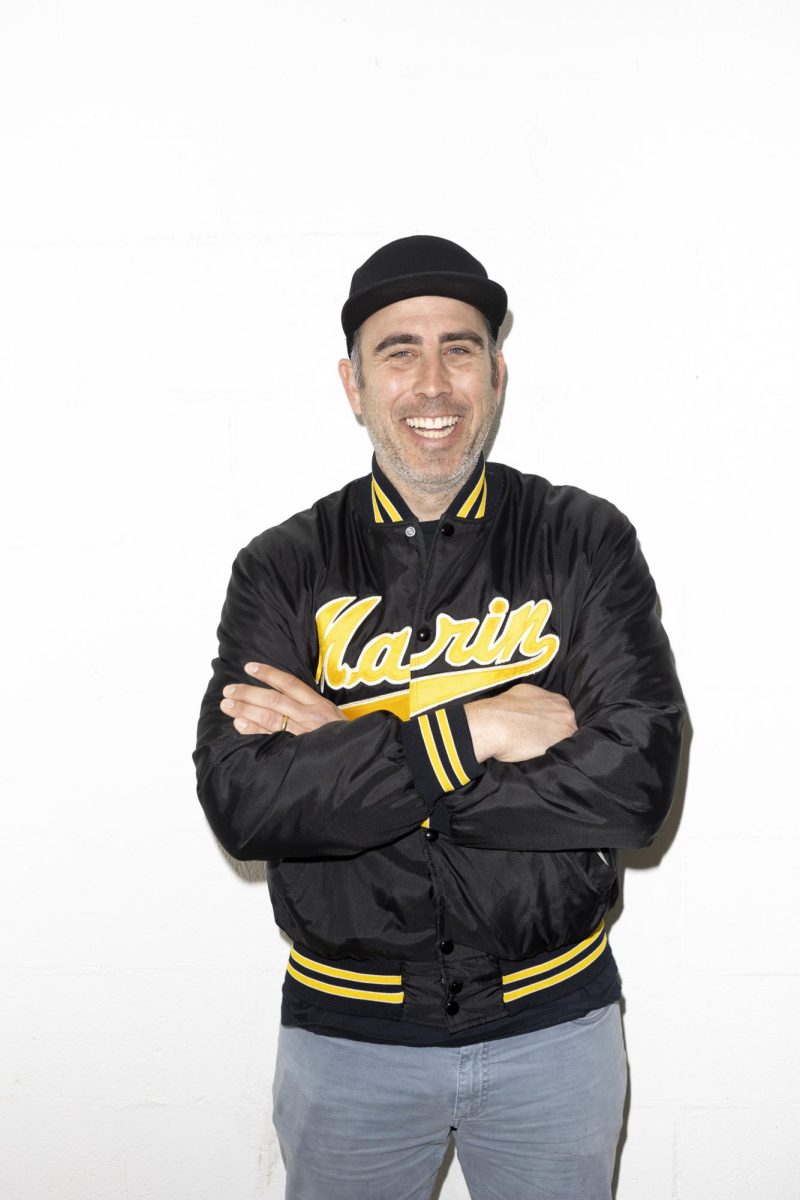It’s in whispers passed around hallways, in clever commentary and in predictable puns. Yet as humor supports us through lighthearted conversation, it can also serve as a shield from suffering. Humor, for many, can serve as a coping mechanism and a way for individuals to disguise their genuine emotions. But as serious topics are tossed around with a frightening degree of indifference and cries for help are masked in laughter, navigating humor’s complexities becomes ever more important. With its ability to bring smiles and laughter to a crowded room, humor can be an essential part of humanity, but how can its constant use, in place of serious conversation, affect those involved?
Humor as a means of coping with individual or societal struggles has been well studied. According to a study by Sahmyook University, the benefits of laughter, as a result of humor, are numerous, including a decrease in stress hormones and an easing of anxiety. Humor has its place in history as well. “The Decameron” was a comedy book published in 1352 as Europe was ravaged by the bubonic plague. Detailing the lives of a group of people quarantining together, “The Decameron” quickly became a bestseller, offering a moment of levity amid an otherwise incredibly difficult time.

Beyond its psychological and social benefits, humor can also serve as a mindset, according to College of Marin philosophy professor John Marmysz, who has studied humor and its philosophical significance. Marmysz asserts that humor allows those who use it to retain a sense of joy through what would typically be a painful experience.
“Humor is an attitude. It’s a perspective that you can bring to bear on any circumstance,” Marmysz said. “It’s a mental shift in perspective that allows you to extract a kind of pleasure from what would otherwise be harmful or painful.”
But humor, for many, has grown more dark in recent years. In some ways, using humor can create a sense of freedom when discussing more serious topics. According to a November Bark survey, 43 percent of students use humor “often” to discuss difficult subjects. Junior Vel Connolly explains how humor can allow people an outlet to discuss their struggles more comfortably and can provide a sense of protection from the typical repercussions of a serious conversation.
“When you’re joking about something terrible, especially when it’s a personal issue, [humor] sort of gives you an out. ‘Well, I could be serious about this. But I could also be entirely joking,’” Connolly said. “[Then,] when you have that freedom to actually talk about your experiences, it gives other people the space to [relate and share their own experiences.]”
According to a November Bark survey, 33 percent of students most frequently use humor to discuss negative experiences or trauma, compared to 21 percent who use serious conversation. Wellness Outreach Specialist Magdelena Maguire, experiences this trend as she finds discussions around mental illness or other deeply personal serious subjects can often be coated in a thin layer of irony, as many people use comedy as a means of distancing themselves from the reality of their situation. For Maguire, the use of comedy to express mental health struggles at Redwood and beyond is the result of the current teenage generation finding difficulty in openly experiencing and expressing their emotions.
“What I see with this generation’s use [of humor] is a kind of deflection [rather] than a coping skill. Kids will often come [into Wellness] and be like, ‘I’m depressed!’ and make a joke out of it. To a certain degree, it makes it easier for them to come to terms with that because they see it as a common experience,” Maguire said. “It’s tough to get below the layers of humor and jokes before we get to, ‘Oh, I’m actually feeling so sad, and I feel really isolated and lonely.’”

While jokes about difficult subjects can allow people to express their personal experiences, they can result in the unintentional harm of those around them. Connolly believes that as humor leads people to joke about increasingly sensitive topics, it is important to remember the audience for these jokes — and that they may not always be in a position to hear these subjects discussed in such a casual way.
“In general, I do not like it when people make self-harm jokes. I’m like, ‘Where’s the funny in this? There’s no positive aspect to this,’” Connolly said. “You’re conditioning your brain to think this is okay. But that can hurt the people around you because you don’t know what other people’s experiences with [those topics] are.”
With this in mind, the use of jokes can also be a way for individuals to avoid confronting their problems. As humorous jokes are used in conversation, the severity and significance of the topics being addressed may be lost. Junior Kaitlyn Widman finds that the use of darker humor can lead people to share their own experiences in a way that disguises their emotions. Likewise, how one reacts to dark humor can also be difficult as the lines between humor and sincerity are often blurred. For Widman, responding to jokes with dark humor can be challenging as the meaning behind the humor may be hard to dissect.
“[Using humor as a shield] can take away the serious aspect of [what you are saying], so you don’t get hurt,” Widman said. “You can just say, ‘It’s a joke,’ or ‘It’s dark humor,’ and then it’s okay. You’re focusing on the fact that you’re a funny person instead of the fact that there’s actually something more happening.”
Connolly adds that the frequency of these jokes in day-to-day conversations can desensitize those who use dark humor to the severity of their situation.
“The more you joke about sensitive topics, [such as suicide,] the more you are subconsciously desensitizing your brain to that idea, and the more it can actually feed into suicidal ideation, and the more dangerous things can actually be,” Connolly said.
But it’s important to recognize the invaluable role that humor can play in allowing people to view their challenges — and themselves — in a new light. Marmysz explains that humor offers a unique sense of individual reflection, as creating something humorous out of a traumatic experience can, for some, provide a source of liberation.
“I think the power of humor is to distance yourself from yourself,” Marmysz said. “Humor gives you the ability to turn inward and to laugh down at yourself… That can be a kind of self-empowerment.”

Connolly additionally explains the importance of using humor to serve as a possible force of healing from negative experiences, allowing those who may be suffering to take on a new perspective.
“Sometimes, if you’ve been through something really difficult, making a joke out of it and making light of it can really help. ‘See, this thing isn’t hurting me anymore. Now that it’s funny, it can’t hurt me,’” Connolly said.
In Connolly’s experience, a serious conversation is often the best way to respond in this situation, to clarify the meaning behind the humor.
“When you’re actually concerned about your friends, those are times when you want to make it clear. Are they just making a joke? And sometimes it is pretty obvious. But other times it is not,” Connolly said. “[It’s important] to let them know that they do not have to be joking all the time with you.”
Maguire highlighted the importance of understanding the underlying reasons behind the use of humor.
“I invite students to check in with themselves about what they mean when they say [dark] things. What’s hiding under the mask of using comedy and levity in that moment?” Maguire said.
It is key, then, to locate the balance between sincerity and humor, and to remember the power humor holds as a means of expressing oneself within a difficult world, as Marmysz explained.
“That’s the real power of humor — it holds that promise [of] change. By developing your sense of humor, you can change yourself into a more powerful, masterful individual,” Marmyz said. “Humor allows us to cope with a world that we wish was otherwise.”























